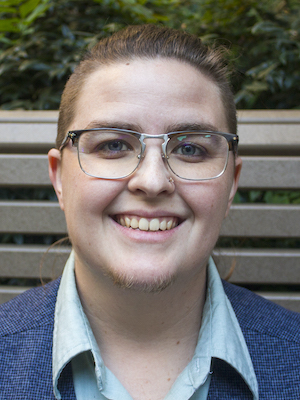
Since the early days of my faith journey, I have been enamored with the book of Psalms.
There’s something magical about someone’s ability to tell a story through verse. So, whenever I use a Lectionary for any purpose, the Psalter selection for that Sunday is the first scripture I read.
The Psalter reading for this week of Advent is Psalm 72:1-7 and 18-19. I always wondered why those who built the liturgical year didn’t just focus on verses 1-7; why add the tag at the end of the psalm?
Wouldn’t it be enough to focus on verses 1-7 where it foretells of one who will save the needy and smite the oppressors? Jumping to the end of the psalm to give praise to God almost feels out of place here.
That’s when I have to remind myself that the book of Psalms is a book of songs, and that songs don’t function the same way stories do.
When I was younger, I studied music. I was an aspiring clarinet player who originally went to college to pursue a career in music.
In my first semester, I had the opportunity to take an intro-level music theory class. Playing music was one thing; learning how composers pieced music together was a completely different undertaking. It was one of the hardest classes I’ve ever taken, but I’m thankful for the experience.
Learning how composition works put words to something I knew intuitively from playing clarinet for so many years but had never been able to articulate.
The best musical pieces aren’t the ones that sound predictable; any musician worth their salt knows that. The best songs are dramatic. The volume rises and falls, the speed quickens and slows. The variety makes it memorable.
But the best composers know that pieces need dissonance in order to be something truly great. Dissonance is when some notes are clustered together into chords that don’t quite feel natural.
These are the notes that make your hair stand on end – maybe even make you feel a little uncomfortable (think of the background music of any scary part of a movie.); something about the chord is just “off.” Some folks may go so far as to say that the dissonant parts of a song sound harsh, grating or just plain bad.
But the composer doesn’t leave you there. The composer will allow the discomfort to build before arranging the notes into a powerful chord that relieves the tension. Those moments inspire hope to swell within your chest, goosebumps to ripple across your body.
The release of that tension does something within us, allowing us to exhale the breath we didn’t even realize we’d been holding. That’s why composers call that part of the chord progression a “resolution”; the tension gets resolved.
Martin Luther King Jr. once said that “true peace is not merely the absence of tension; it is the presence of justice.” In other words, we can’t get to the resolution until the dissonance has been addressed.
Peace is the most beautiful song. But we cannot fool ourselves into believing that peace is simply the absence of dissonance.
We will never know true peace until we reckon with the poison in our society that leads to shootings like the one at Club Q just before Thanksgiving this year.
We will not know peace until we deal with the white supremacy that threatens the lives and prosperity of people of color all over the country.
We will not know peace until we have the courage to face these evils head on – both within society and within ourselves.
Perhaps that is why the author of Psalm 72 starts the piece by begging God to “endow the king with justice” so that the king may “judge people with righteousness” and “save the children and the needy” by “crushing the oppressor.”
The psalmist leads us through verse after verse that describes conflict and tension – dissonance. But we are not left there.
The psalmist describes someone facing that conflict, then includes verses 18 and 19 at the end as a reminder of what’s to come if we commit to push back against the evils of this world: “Praise be to the Lord God, the God of Israel, who alone does marvelous deeds. Praise be to his glorious name forever; may the whole earth be filled with his glory. Amen and Amen.”
The dissonance is resolved. Peace reigns.
The song of peace is unfinished, and we are the composers. How will you handle the dissonance?
Editor’s note: This article is part of a series for Advent 2022. Each week, an article will be published reflecting on one or more of the lectionary texts for the forthcoming Sunday. The previous article in the series is:
Advent Lectionary | Flood Watch | Chase Caldwell

